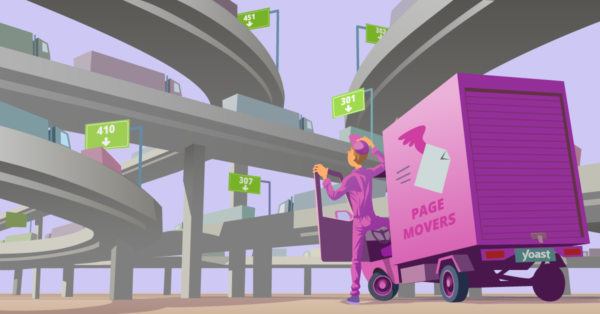7 December 2017
Andrea Fercia
Big meetings like WordCamp US are always a good opportunity to get a feel for what has been accomplished during the year. It helps to get an idea of where we’re at with general trends in the WordPress community. At WordCamp US this year I’ve seen people from all over the world sharing ideas, having »
Read: "The a11y Monthly: Thoughts after WordCamp US"

30 October 2017
|
Tim Hengeveld
At Yoast, we organize a company-wide user testing session each month. In these sessions, we ask our employees to take a look at a product or feature. On October 12th we focused on user-testing Gutenberg. We did this to gain a better understanding of how different users work with Gutenberg. This knowledge is sure to »
Read: "User-testing Gutenberg"

30 October 2017
Andrea Fercia
Recently, I joined a conversation where someone said a great part of accessibility is “subjective.” While I’d agree that sometimes the perception of accessibility is subjective, there are objective rules. I’m not referring just to the official specifications such as the Web Content Accessibility Guidelines or the ARIA Authoring Practices. There are practical rules every »
Read: "The a11y Monthly: Give your HTML elements an accessible name"

28 September 2017
|
Andrea Fercia
The aria-current attribute is a new, tiny bit of HTML in the upcoming ARIA 1.1 specification. It’s a simple, effective way to communicate to assistive technologies which the current item within a set of related items is. Here, I’ll try to explain how such a small attribute can improve your website accessibility. I’ll also show how »
Read: "a11y Monthly: Spruce up website accessibility with aria-current"

25 September 2017
|
Omar Reiss
In the upcoming weeks, WordPress will choose a UI rendering framework. I’ve heard many claims plugin / theme developers will still be able to use whatever they like, regardless of what WordPress chooses. I think we shouldn’t count on that, nor should we focus on providing interoperability at this point. Instead we should focus first »
Read: "WordPress UI library choice: extensibility vs. interoperability"
31 August 2017
|
Andrea Fercia
I’ve been focusing on web accessibility for a few years now. One of the complaints I’ve often heard from business owners and managers is that implementing accessibility is hard and slows down the development process. For this reason, sometimes accessibility gets postponed or set aside in the erroneous belief that’s something that can be “added” »
Read: "a11y Monthly: Does Accessibility slow down development?"

28 July 2017
|
Andrea Fercia
One of the most common misconceptions I often hear about Web accessibility is that accessibility is for people with disabilities or with some kind of impairment. Some people think it relates to a small percentage of users. Business owners and managers, even the ones who understand the value of accessibility, sometimes tend to think it can »
Read: "The a11y Monthly: Accessibility for the future you"

9 June 2017
|
Andrea Fercia
The title attribute is a small bit of HTML that developers can use on most of the HTML elements. In desktop browsers, the title attribute content is typically displayed as a visual “tooltip”. The attribute has been around for about 15 years. It is still widely used on the internet in the belief it’s a »
Read: "The a11y Monthly: Why you shouldn’t rely on the title attribute"

5 May 2017
|
Taco Verdonschot
Today, we’re announcing the start of our final testing round before the official release of Yoast SEO for Magento 2. This release candidate contains all the functionalities that will be available in the 1.0 release. The next few weeks will be all about testing. That’s why we want to invite you to help us test Yoast »
Read: "Release candidate Yoast SEO for Magento 2 now available"








